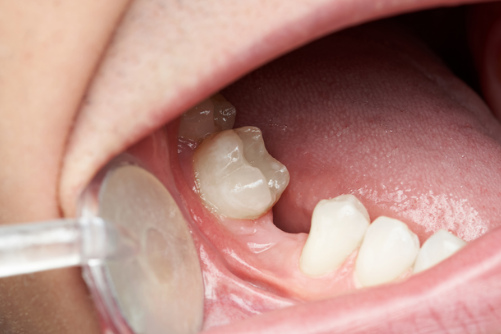A root canal treatment is inevitable for various dental conditions like deep decay, repeated infection around old fillings or crowns, cracked or chipped teeth, and other trauma to teeth that may result in injury to the pulp. The simple principle of root canal treatment is to access a tooth's infected pulp and root canals, clean out the infected tissue and fill the empty pulp chamber and canals with a sterile filling. After this, the access is sealed and a porcelain crown is placed for additional protection and strength.
These steps are done with a dental drill and hand instruments in conventional root canal whereas with the advanced Laser Technology, a highly focused beam of light is used to destroy the infected tissues and clean the root canals. Powerful laser technology irradiates each of the canals to destroy infectious bacteria where manual instruments cannot reach and thereby increases the success of the treatment with minimal discomfort or pain.
Advantages of Laser Root Canal Treatment:
- More precise as laser can target the infected area with greater accuracy
- Preserves more tooth structure
- Evident decrease in bacterial counts
- Reduced risk of re-infection
- More comfortable and painless without the sound of drills
- Limited requirement of local anaesthesia
- Single sitting root canal possible in qualifying patients
Do not let the fear of drills not keep you from getting your root canal treatment done anymore. The cutting edge technology that we use with lasers have proved to be completely safe and comfortable with great recovery among our patients. So keep your anxieties at the bay by choosing Laser assisted Root Canal Treatment.
Blog Reviewed By: Dr.C.M.Bejoy Mony, MDS
Mail us: srivariclinicchennai@gmail.com
Book appointment: chennaidentalclinic.in/book-appointment










